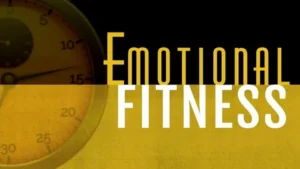Knowing when to speak and when to remain silent is a skill that can improve your relationships, protect your peace, and help you avoid unnecessary wahala (conflicts). Silence is often underrated, yet it is very powerful. There are situations where silence speaks louder than words.
Choosing silence in certain situations doesn’t mean suppressing your voice; instead, it’s about timing, emotional intelligence, and strategy. Speaking up is important, but knowing when and how to do so makes all the difference.
Silence is not about weakness, it’s about control, wisdom, and choosing your battles wisely. Knowing when to stay quiet and when to speak up ensures that when you use your voice, it carries more weight and influence.
Frankly speaking, I have been in situations where, in retrospect, I should have stayed silent rather than spoken. We’ve all been there. Mistake made. Lesson learned. Growth embraced.

8 Life Situations Where Staying Silent Is the Wisest Choice
1. When you’re angry
Let’s start with a quote I’ve come to hold dear: “You cannot see your reflection in boiling water. Similarly, you cannot think clearly when you’re angry.” It’s simple, yet deeply true. Anger clouds our judgment just like steam fogging up a mirror. And when you can’t see clearly, you act blindly. That’s when the damage happens.
We’ve all been there, words tumbling out faster than we can filter them, sharp as daggers, and often hitting where it hurts the most. In the heat of the moment, logic usually takes a backseat, and what takes over is our wounded ego or bottled-up frustration. The problem is, once those words are out, they rarely land gently, and no matter how many times we apologise later, some things stick. Some damage lingers.
Over the years, I’ve learned that walking away doesn’t mean weakness. It means choosing wisdom. If I feel that heat rising in my chest or my words starting to tremble with fury, I’ve made it a habit to pause. Just pause. Step out of the room. Take a walk. Breathe. Sometimes I talk it out with myself first, get all the ugly, raw emotion out where no one else gets hurt.
Delaying your reaction doesn’t mean ignoring the problem. It just means you’re choosing to respond, not react. You’re giving yourself the gift of clarity, something that’s impossible to find when your emotions are boiling over. And more often than not, when you come back to the conversation with a cool head, what felt like an explosion waiting to happen now feels like a solvable issue.
So next time you feel your anger bubbling up, remember the boiling water. Nothing clear comes from chaos. Step away. Let the waters still. Then return, not to fight, but to understand and to be understood.
2. When you don’t have all the facts
It’s tempting, isn’t it? To fill in the blanks when we don’t have the full picture. Our minds crave closure, and in the absence of truth, we often substitute it with assumptions. But jumping to conclusions is like writing the end of a story without reading the middle. You’ll likely get it wrong, and the consequences can be more damaging than we imagine.
In this hyper-connected world, where information travels faster than truth, it’s easier than ever to be misled. A headline, a clipped video, a second-hand conversation. We latch on these, form opinions, pass judgment, and sometimes even speak publicly, forgetting that we’re working with fragments. In that moment, we feel informed. But in reality, we’re navigating in the dark.
I’ve been on both sides of this mistake. I’ve been misunderstood by people who never took the time to ask, and I’ve also made assumptions that later embarrassed me. The pattern is the same: a rush to react, a lack of patience, and a silence that would’ve saved so much.
Truth has a way of unfolding. It doesn’t always arrive fast, but it arrives. And when it does, it’s a painful thing to realise you spoke too soon. You can’t unsay words. You can’t unring a bell.
So now, I remind myself: pause. Listen longer. Ask questions. Let things settle. Staying silent while you wait for clarity isn’t weakness, it’s emotional discipline. It protects your integrity and keeps your relationships from suffering under the weight of your assumptions.
In a world that rewards hot takes, be the one who waits for the whole truth before you speak. There’s a quiet kind of power in that. And over time, people learn they can trust your voice because it’s not driven by impulse, but by intention.
3. When someone needs a listening ear
Not every conversation is a call for advice. Sometimes, people open up to us simply because they need a safe space to release what’s weighing on them. What they truly want in those moments is to feel seen, heard, and held, not analysed or fixed.
Jumping in too quickly with advice, comparisons, or criticisms can unintentionally shut them down. It sends the message that their emotions are a problem to solve rather than something to sit with.
Sometimes, the most powerful thing you can offer is your full, quiet presence. A nod. A pause. A moment of shared silence that says, “I’m here with you. I’m not rushing you. I get it.” Let your empathy speak louder than your words. Save the advice for when (and if) they ask.
4. When your words won’t add value
We live in a world that often rewards quick responses and constant noise. But not every moment calls for our opinion. Not every silence needs to be filled. Sometimes, speaking just for the sake of speaking adds clutter to a conversation that’s already delicate or complex. And in those moments, our words, though well-intentioned, can blur clarity, invite misunderstanding, or even unintentionally escalate the situation.
The truth is, silence isn’t empty. It’s a space that allows things to settle, emotions to breathe, and others to feel truly seen without interruption or judgement. Choosing silence doesn’t mean you don’t care. It means you care enough not to disrupt something that needs space instead of sound.
If what you’re about to say doesn’t offer comfort, clarity, or calm, then maybe silence is your highest contribution. Sometimes, the real power is in restraint, not in having the last word, but in knowing when no words are needed at all.
5. When you’re in the midst of gossip and rumour
There’s a certain pull that gossip has; it feels casual, harmless, even bonding in the moment, butt the truth is, gossip and rumour are never as innocent as they appear. They carry the weight of broken trust, distorted truths, and damaged reputations, often reaching further than we ever intended. And sometimes, the same energy we put out has a way of circling back to us.
It may feel tempting to lean in, to contribute, to “just listen”. But there’s something deeply powerful about choosing not to engage. Choosing silence in the midst of gossip isn’t weakness, it’s a quiet act of strength. It’s you protecting your peace, guarding your values, and refusing to be a part of someone else’s undoing.
Staying out of the drama doesn’t make you less interesting; it makes you trustworthy. It positions you as someone who values truth over noise, dignity over cheap entertainment, and maturity over momentary amusement.
In a world so quick to talk, choosing not to speak can say a lot about who you are.
6. When an apology won’t make a difference.
Sometimes, “I’m sorry” just doesn’t cut it, and that’s not because it isn’t heartfelt, but because the impact of our actions reached deeper than words can repair.
Apologies are important, yes, they acknowledge harm, open the door to healing, and show humility. But in certain moments, especially when trust has been broken, when someone’s work has been undone, or when real loss has occurred, words alone won’t bridge the gap.
What truly matters then is what comes after. The follow-through. The change. The tangible effort to make things right or at least prevent further harm. Saying “sorry” without action is like promising to rebuild a house and never laying a single brick.
If your actions hurt someone financially, professionally, or emotionally, restitution, no matter how small, shows you take responsibility seriously. Sometimes, stepping up means covering the cost, fixing the error, or staying silent while you work to rebuild what was broken.
In those moments, silence with effort speaks more than loud, rehearsed remorse. Sincere regret shows not just in how we feel, but in how we choose to behave going forward.
7. When someone Is expressing their beliefs or opinions
“You can win an argument and still lose a friend.”
In conversations, especially the emotionally charged or value-based ones, it’s easy to get pulled into the need to correct, convince, or defend. But not every disagreement is a cue to debate. Not every differing opinion is a threat to your own.
Sometimes, insisting on being “right” costs more than it’s worth. It can chip away at mutual respect, deepen divides, or quietly fracture trust. And often, what begins as a difference in perspective can spiral into tension that lingers long after the conversation ends.
There’s wisdom in knowing when to engage, and even more wisdom in knowing when to let it go. If the goal of a conversation is no longer understanding but simply winning, then silence might be your most powerful choice.
Choosing not to argue doesn’t mean you’ve conceded. It means you value the relationship more than the need to be heard at that moment. And that kind of emotional intelligence is rare and deeply respected.
8. When you’re experiencing deep pain or grief
There are moments in life when words feel too small for what the heart is carrying. Grief has a way of pulling us inward, and in those quiet spaces, silence often becomes our truest companion.
You don’t need to explain your sorrow. You don’t have to find the right words. Sometimes, sitting in stillness, alone or beside someone who simply understands is enough. Whether it’s walking aimlessly, curling up with a book, listening to gentle music, or just breathing through the ache, healing often begins in the hush, not the noise.
You are allowed to feel deeply without performing that pain for others. Speak when you’re ready, not when you’re expected to. Because silence, in times of grief, isn’t emptiness, it is sacred space. A space where your heart can begin to sort through what words can’t yet reach.
True wisdom lies not just in knowing what to say, but in knowing when silence speaks more clearly. The more you master that balance between expression and stillness, the more grace you bring into your relationships and into your healing.
Stay frosty.




